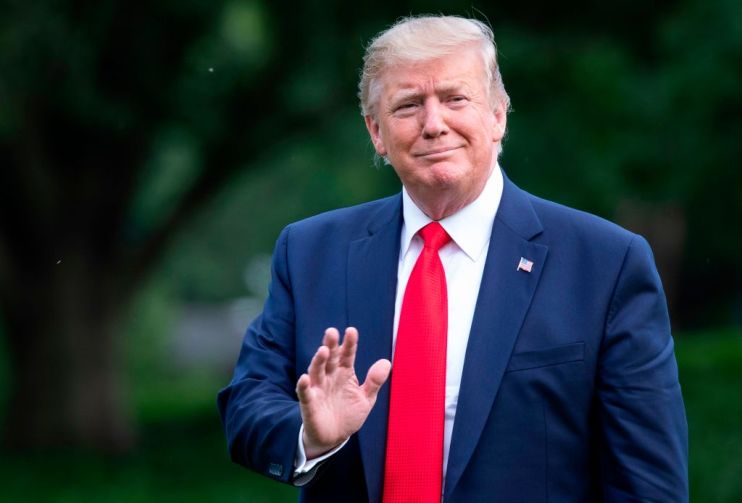Trump’s tax cuts spurred an economic bonanza – the UK must follow suit

The most recent economic growth stats show that we are getting richer at the rate of 1.8 per cent a year. Solid enough, and ahead of the Eurozone, Japan and Canada.
But the US is more robust, with annual GDP up 3.2 per cent. Why are the Americans doing better than us?
It seems rather likely that tax cuts have had something to do with it.
The Tax Cuts and Jobs Act of 2017 saw the US corporate tax rate slashed from 35 per cent to 21 per cent. If economic behaviour had remained the same, that would have meant a 40 per cent drop in revenue.
But the latest report from the Congressional Budget Office shows revenue down by only 8.7 per cent. The greater reward for enterprise is already having an impact.
The income tax cuts were less dramatic, but still significant. The top rate fell from 39.6 per cent to 37 per cent. For those earning between $9,526 and $38,700, the rate fell from 15 per cent to 12 per cent.
The US added over 2.6m new jobs in the year following those reforms – a quarter more than the previous year.
As Steve Mnuchin, the US treasury secretary, declared: “Business and consumer optimism has returned. Capital investment is increasing. Americans are returning to the workforce, and consumers have more money in their pockets. Entrepreneurs are once again finding an environment that rewards their creativity and dynamism.”
This success defies some gloomy predictions. Nobel Prize-winning economist Paul Krugman wrote in 2016 that Donald Trump becoming President would lead to a “global recession”. Larry Summers, an economic adviser to both the Clinton and Obama administrations, mocked Trump’s optimism, responding to claims that a three per cent annual growth rate would be achieved with “fair enough if you believe in tooth-fairies”.
Such comments make it harder to dismiss this economic growth as something that would have happened anyway, regardless of tax cuts. Yet the Democrats still fiercely oppose the policy. Even former vice president Joe Biden, considered a “moderate” in the Democratic primary race, has called for a repeal of the cuts.
Why should this matter to the UK? At present, it is hard to think of anything other than Brexit. But if that happens on schedule on 31 October, the next General Election is not due until 2022. Surely discussion will have moved on by then.
And it may, indeed, have moved onto tax. Both Boris Johnson and Jeremy Hunt have made bold tax-cutting promises – especially Hunt’s proposal to cut corporation tax to match Ireland’s 12.5 per cent.
Any cuts will be contentious, so proponents must start making the case for lower taxes now.
Part of their argument will be about freedom: that we should choose how to spend our money, rather than have the state spend it for us.
But the US shows that there’s also a strong economic argument: tax cuts create wealth and prosperity.
Here’s how Boris made the case: “As the great Tunisian scholar and sage Ibn Khaldun pointed out as early as the 14th century, there are plenty of taxes that you can cut which will actually increase your revenues and there are ways of making sure that you can stimulate growth, you stimulate enterprise and you get more in.”
Often, measures on the economic impact of tax cuts take no account of such behavioural changes. But that is not to say that such changes will fail to materialise.
America is having this debate now. Britain should look at these robust economic figures, and take note.